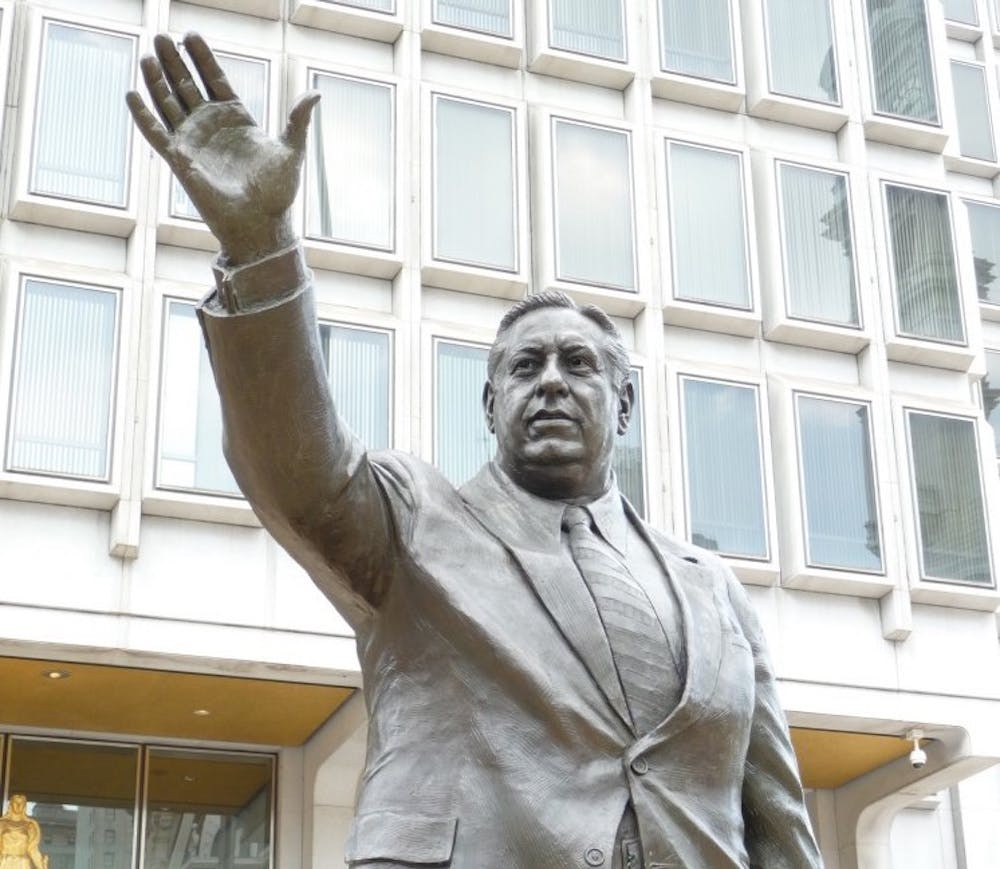Philadelphia Mayor Jim Kenney declared that the city's controversial statue of former Mayor Frank Rizzo would be moved from its current position outside City Hall, according to a report last week in The Philadelphia Inquirer.
The bronze statue has stood outside of the Municipal Services Building in the Thomas Paine Plaza for almost 20 years. Managing Director for the City of Philadelphia, Michael DiBerardinis, said in a statement that the relocation is a byproduct of plans to renovate Thomas Paine Plaza, but did not specify when or where it will be moved.
Following the August riots in Charlottesville, Va., during which neo-Nazis violently faced off with counter-protesters over the removal of the city's monument to Confederate General Robert E. Lee, cities across the nation began to face increased pressure to remove statues of figures with connections to slavery or racial discrimination. Protesters in Durham, N.C. toppled a Confederate monument in the city square, while others in a Minneapolis neighborhood burned a Nazi in effigy in the street.
On Aug. 14, Philadelphia City Councilwoman Helen Gym, a former Daily Pennsylvanian news editor, tweeted her support for the removal of Rizzo's statue:
Rizzo served as police commissioner during the 1960s and as mayor from 1972 to 1980. He had notoriously tense relationships with the city's black and LGBTQ communities during his tenure. His supporters claim that he, a native of South Philadelphia, was a dedicated public servant who defended the police. His critics allege that he employed racist tactics that unfairly targeted minorities.
Rizzo denied frequent accusations of racism.
"My background wouldn't permit me to be a bigot or a racist because I came from very humble beginnings and I came from parents that came here and were the victims of prejudices,” he reportedly said, according to a 1991 DP article.
RELATED:
Violence erupts during Phila. protest against police brutality
A civil rights activist will be Phila.'s first African-American statue on public grounds
The beating of Rodney King in Los Angeles, he said, made his "blood run cold.”
In August, Rev. Jay Broadnax of the Black Clergy of Philadelphia issued a statement about the statue.
“It runs counter to our ideals and goals to have, in our central square, a statue dedicated to a man whose leadership exacerbated racial tensions and escalated police brutality to the point where they were nationally repute,” Broadnax told The Philadelphia Tribune.
On Oct. 21, a fight broke out in front of the Rizzo statue, two hours into a peaceful protest against police brutality organized by Philly for REAL Justice. Among the 50 protesters and police officers involved in the altercation, there were two arrests, four citations, and multiple officer injuries.
Frank Rizzo Jr., a former City Council member, told The Philadelphia Inquirer that Kenney’s administration did not inform him of the decision of relocating his father’s statue.
“People who support the monument probably won’t even waste their time going [to an expected Art Commission hearing] based on the stacked deck," he said. "This is not a very professional process."



